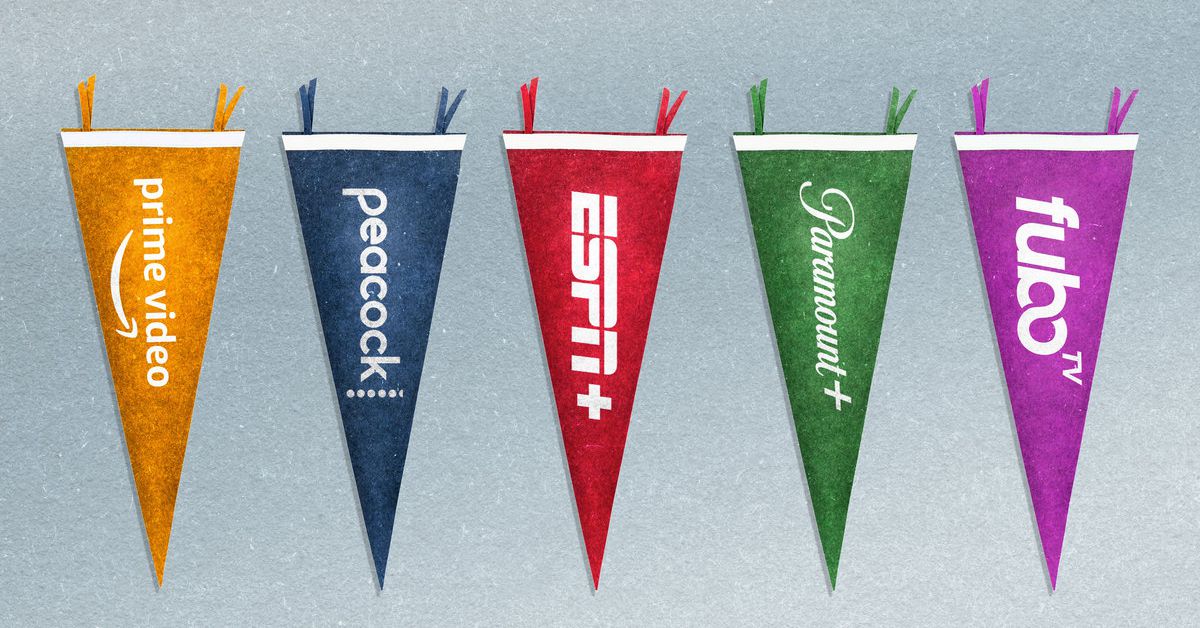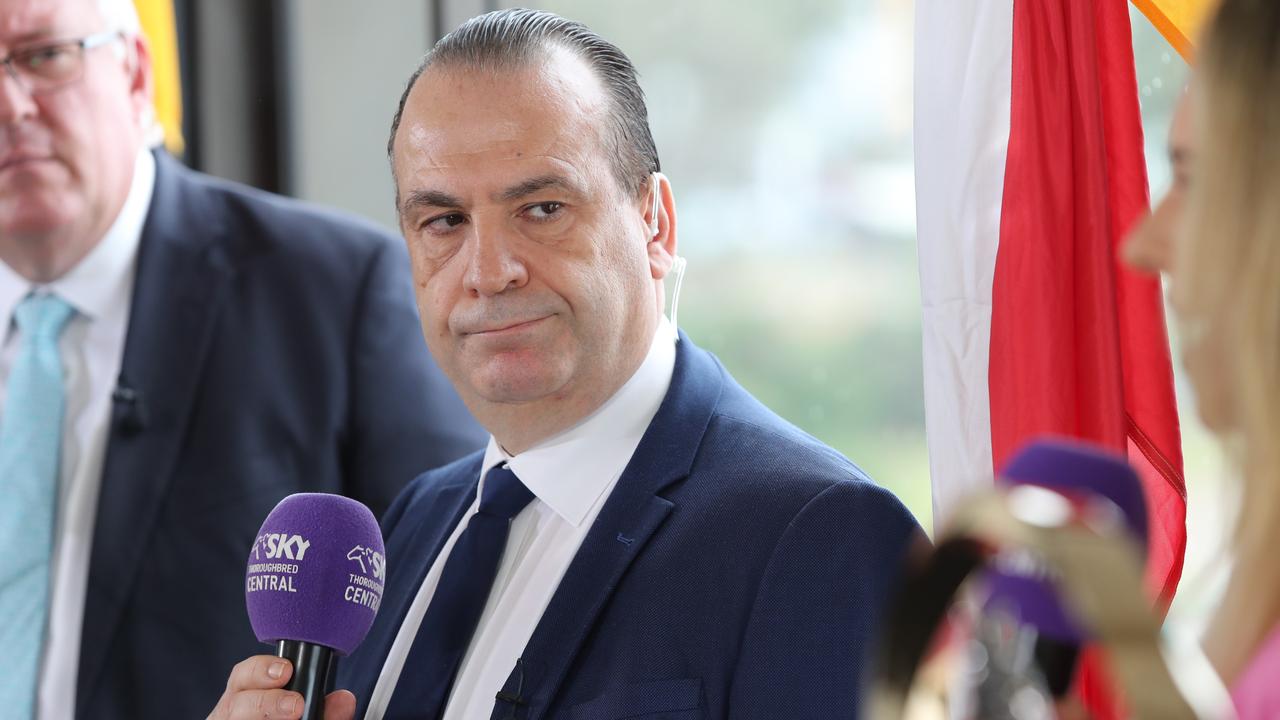Part 1
NRL juggles News Corp, Nine as Seven waits in the wings
October 10, 2021 — 7.55pm
About two weeks ago, a conversation between Seven West Media boss James Warburton and powerful sports administrator Peter V’landys got sidetracked.
The discussion was mainly about Seven’s coverage of upcoming horse racing events including The Everest event in Sydney later this month. But V’landys, who wears two hats - one as chief executive of Racing NSW and the other as Australian Rugby League Commission chairman - was also told about the different ways Seven might broadcast the NRL and how much the network might be willing to pay for it.
Speculative chats with potential broadcasters are a normal part of any sporting administrator’s duties, but the comments can be interpreted as a clear sign Seven is considering an audacious tilt at the NRL free-to-air rights.
Those rights are currently held by Nine Entertainment Co, the owner of this masthead. Nine is still considered a strong frontrunner to renew its longstanding arrangement with the NRL, having been the home of rugby league on TV for decades. But a possible move by its bitter rival to enter the fray would add another twist to its already complicated relationship with the popular sport.
Nine last Wednesday presented its own proposal to the NRL that, if successful, would allow it to continue its relationship with the code for another five years. It was a meeting that V’landys told the NRL’s 16 clubs last Thursday was positive. Nine’s previous presentation, which took place in August, left
V’landys feeling infuriated and disappointed.
The talks over the NRL broadcast rights are now shaping up as one of the most high stakes battles in Australian media for years. They represent a key test for Nine’s recently appointed chief executive Mike Sneesby, and for Foxtel chief executive Patrick Delany who has designs on a public float of the pay TV business as soon as next year. The possible entrance of Seven would only add to the intrigue. Nine, Seven and Foxtel all declined to comment because the talks are confidential.
Media industry sources said Seven has approached Foxtel in recent weeks about a partnership arrangement, where the pay TV company could produce NRL games on Seven’s behalf.
Such a deal would allow Seven to secure the rights to the State of Origin, which must run on free-to-air TV under current rules, and up to three NRL games per week. A partnership would potentially open up the opportunity for Foxtel to broadcast some games for free on its streaming service Kayo Sports, under its ‘Freebies’ model, and simulcast key matches.
NRL’s complicated love triangle with broadcasters
The NRL is supported by the two biggest fish in Australian media - News Corp (through its majority owned pay TV arm Foxtel). But at various points in the code’s recent history, one of the two media partners had held the upper hand, making the scorned party furious.
In the late 1990s, News Corp’s failure to secure a pay television rights deal to broadcast the rugby league led to a lengthy legal battle between Australia’s most renowned media moguls, Kerry Packer and Rupert Murdoch. The Super League wars ended with two rugby league competitions running alongside one another in 1997 before a peace deal was struck the following year.
In 2015, after the NRL signed a $925 million five-year deal with its free-to-air partner Nine on the first day of Murdoch’s visit to Australia, it led to a vitriolic campaign against then NRL boss Dave Smith, who ended up resigning in the middle of negotiations.
The long-running tensions between News Corp and the NRL now appear to be water under a bridge since V’landys took the helm in 2019. V’landys has run Racing NSW since 2004 and as a result has had a longstanding relationship with News and its newspapers such as
The Australian, The Daily Telegraph and
The Herald Sun. Media industry executives often say this relationship is an important part of why Foxtel loves the NRL, again.
But while observers say the relationship between NRL and News has never been stronger, there are now question marks over the health of its ties with Nine, and how much the incumbent is willing to pay. Last year at the height of the COVID-19 pandemic former Nine boss Hugh Marks launched a scathing critique of the NRL, attacking a “bloated head office” for “years of mismanagement”. The spray was widely viewed as the catalyst for the departure of then NRL boss Todd Greenberg.
The Sydney Morning Herald revealed last week that
Foxtel had agreed to hand over an additional $20 million annually over the next five years to the NRL, which will provide financial support for a 17th team based in Brisbane. That is over and above a five-year extension struck last year during the coronavirus pandemic.
In exchange for this additional payment, Foxtel will get more games involving the Broncos (which are majority owned by News Corp) exclusively for its set-top box and its streaming service, Kayo Sports.
The figure is high enough to placate the existing clubs, who have been told it will cost head office about $75 million over the same period to fund a 17th team. But the deal also shocked Nine, the Broncos are currently the only team in Australia’s third biggest city and as such considered a major ratings draw.
The Redcliffe-based Dolphins are considered the frontrunners to be granted a new license ahead of bids from the Brisbane Firehawks and Brisbane Jets, based as much on the support of News Corp as on their submission.
The NRL’s new chief digital officer, Alexi Baker, last week announced a restructuring of the company’s digital arm, putting an end to its breaking news coverage. Foxtel, whose parent company News Corp publishes
The Australian, The Daily Telegraph and
The Herald Sun, has long complained about the division as they believe it competes with their coverage of the NRL. Former Nine boss Marks was also a critic of the NRL’s online news coverage, arguing it unnecessarily competed with Nine’s newspapers (including this masthead).
With Nine, News Corp and Seven all circling, the battle over NRL rights could reshape the Australian media industry.

www.smh.com.au






